Amplitude vs. Mixpanel

Mixpanel vs Amplitude Which One Should You Use? HockeyStack
Both Mixpanel and Amplitude have native integrations but Mixpanel will get a slight edge here because of their support for Zapier. This opens up hundreds of potential integrations in just a few clicks. Amplitude & Mixpanel in 2020. Both tools have continued to improve their product though Mixpanel has likely made the most improvement.
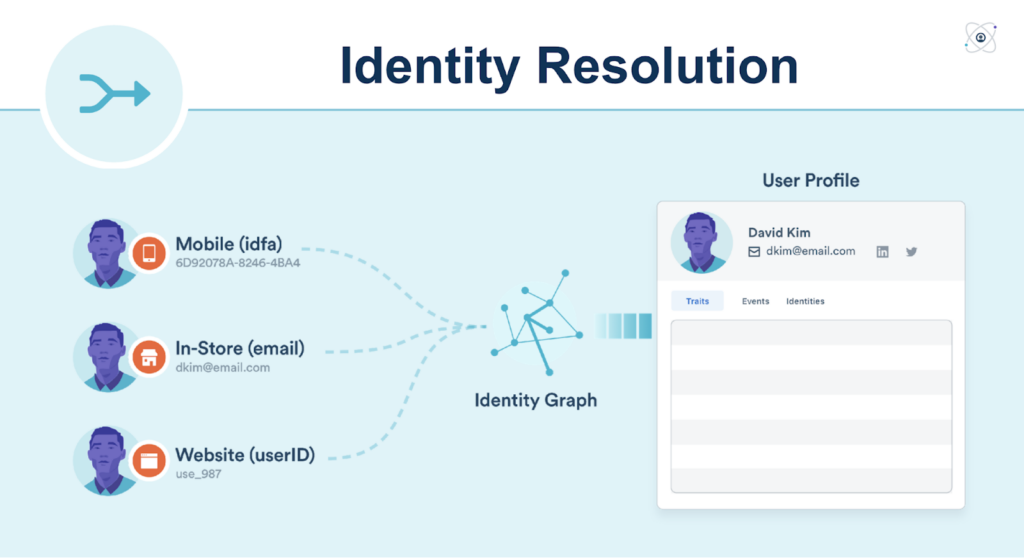
Mixpanel vs. Amplitude Which ID Merge Solution Wins?
With only 4 core reports to learn and one collaborative workspace, Mixpanel's intuitive design accelerates your team exploring data and making better decisions together. Analytics doesn't have to be a chore. POWER. Go deeper in understanding your users. Not only can you get started faster with our easy design, you can also dig deeper.
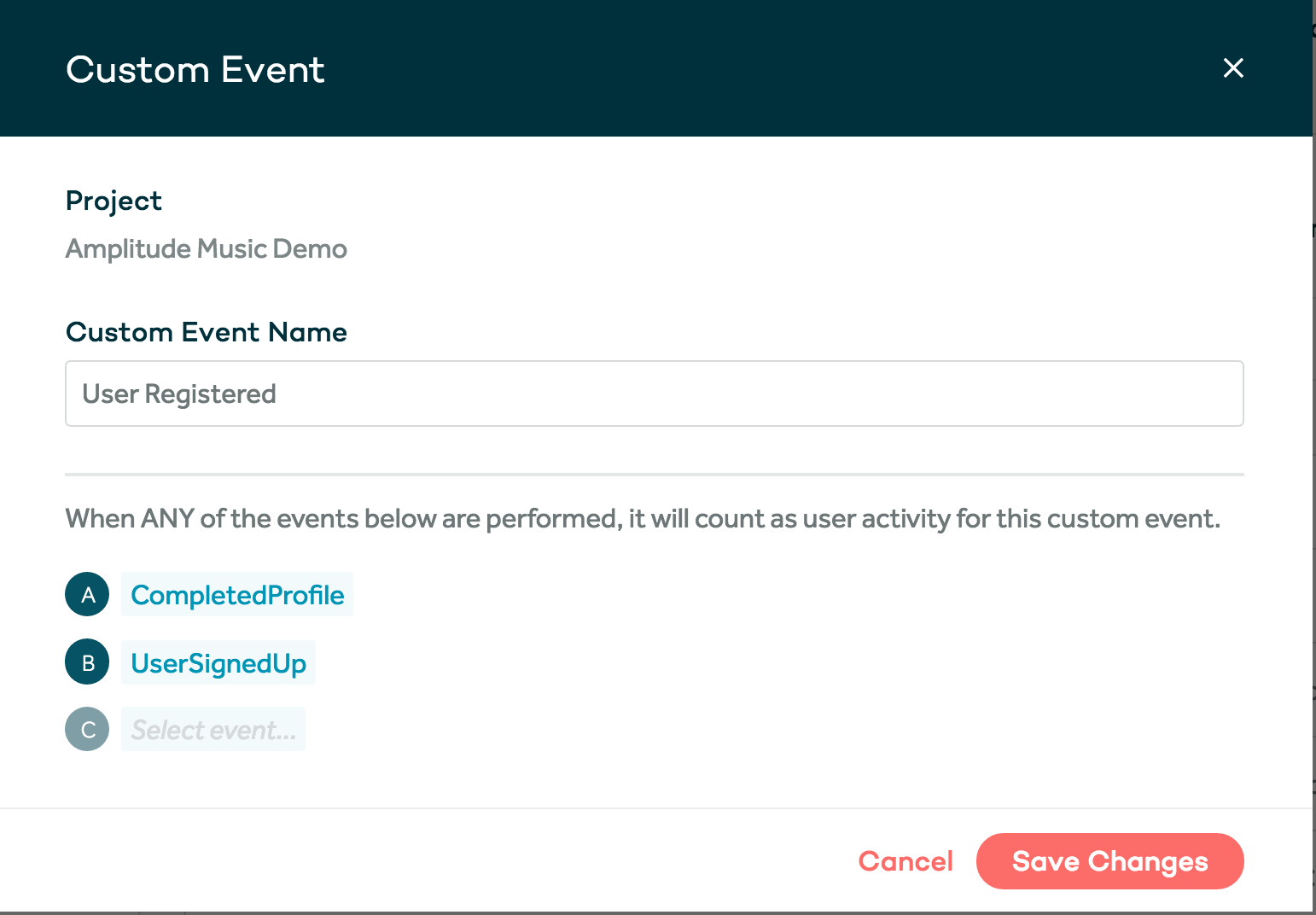
Feature Comparison Between Mixpanel, Kissmetrics and Amplitude! MarketLytics
Amplitude. The types of data collected by Amplitude is very similar to Mixpanel, as are the segmentation and reports. However, the main focus of Amplitude is user behavior. The data it gives you has different sensitivities, so it has a slightly different application.
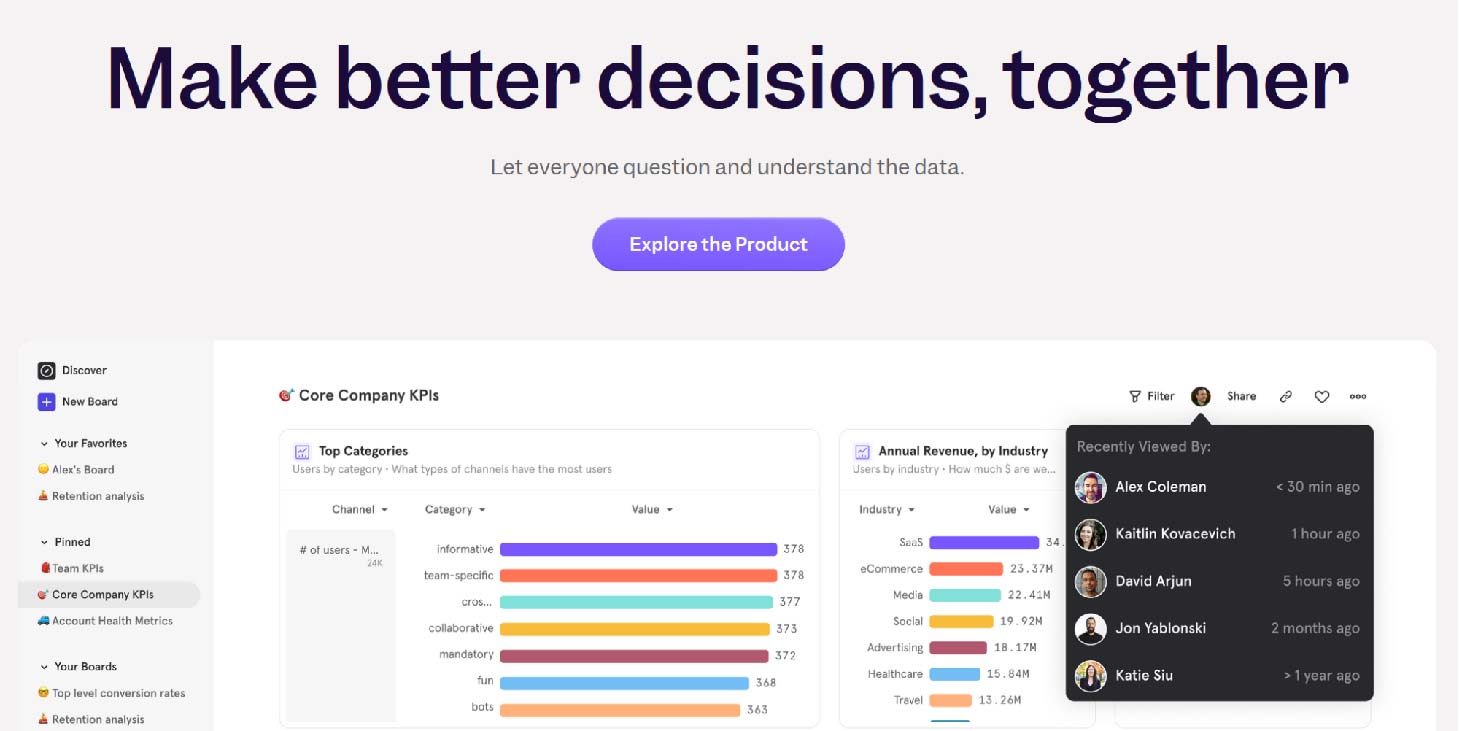
Mixpanel vs Amplitude Your Best Bet In 2023 Salespanel
Amplitude vs. Mixpanel. Find out why leading companies like Atlassian, Hubspot, and Venmo use Amplitude to build better products Growth comes from asking the right questions. Only Amplitude provides teams the tools to find and answer the right questions for driving growth. Our record of industry-leading innovation gives Amplitude customers the.
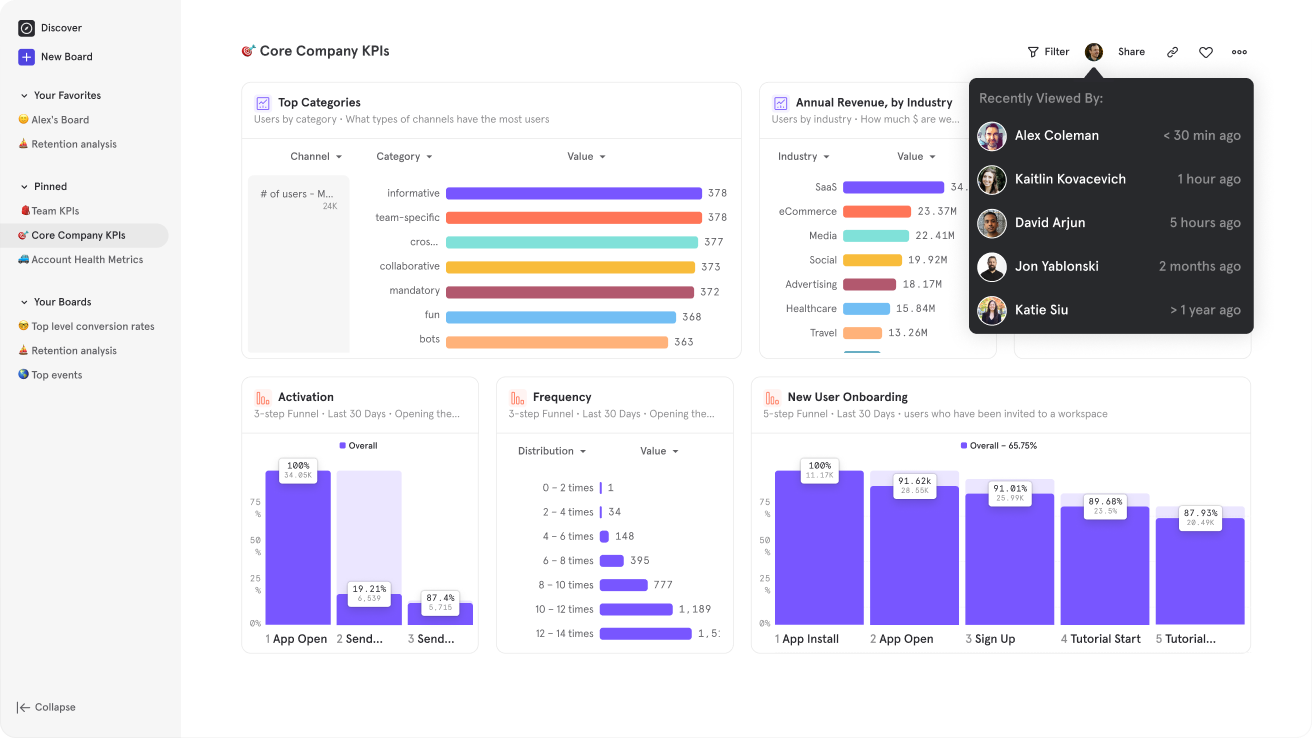
Amplitude Analytics Features and Alternatives
Mixpanel vs Amplitude: 9 Critical Differences. By: Amit Phaujdar Date: October 22nd, 2021. Mixpanel is a powerful Product Analytics tool that offers deep insights into product usage and user behavior to help teams build better products. Amplitude caters to an in-depth analysis of user behavior. While Mixpanel works as a one-stop analytics shop.

Amplitude vs Mixpanel? Understanding the Pros and Cons of Each.
We have discussed Heap, Amplitude, and Mixpanel for user engagement analysis with their pros, cons, and pricing. Let's take a look at a better alternative - Userpilot. Userpilot for user engagement analysis. Behavioral analytics make it possible to monitor user activity, group data into cohorts, and extract relevant metrics/insights.
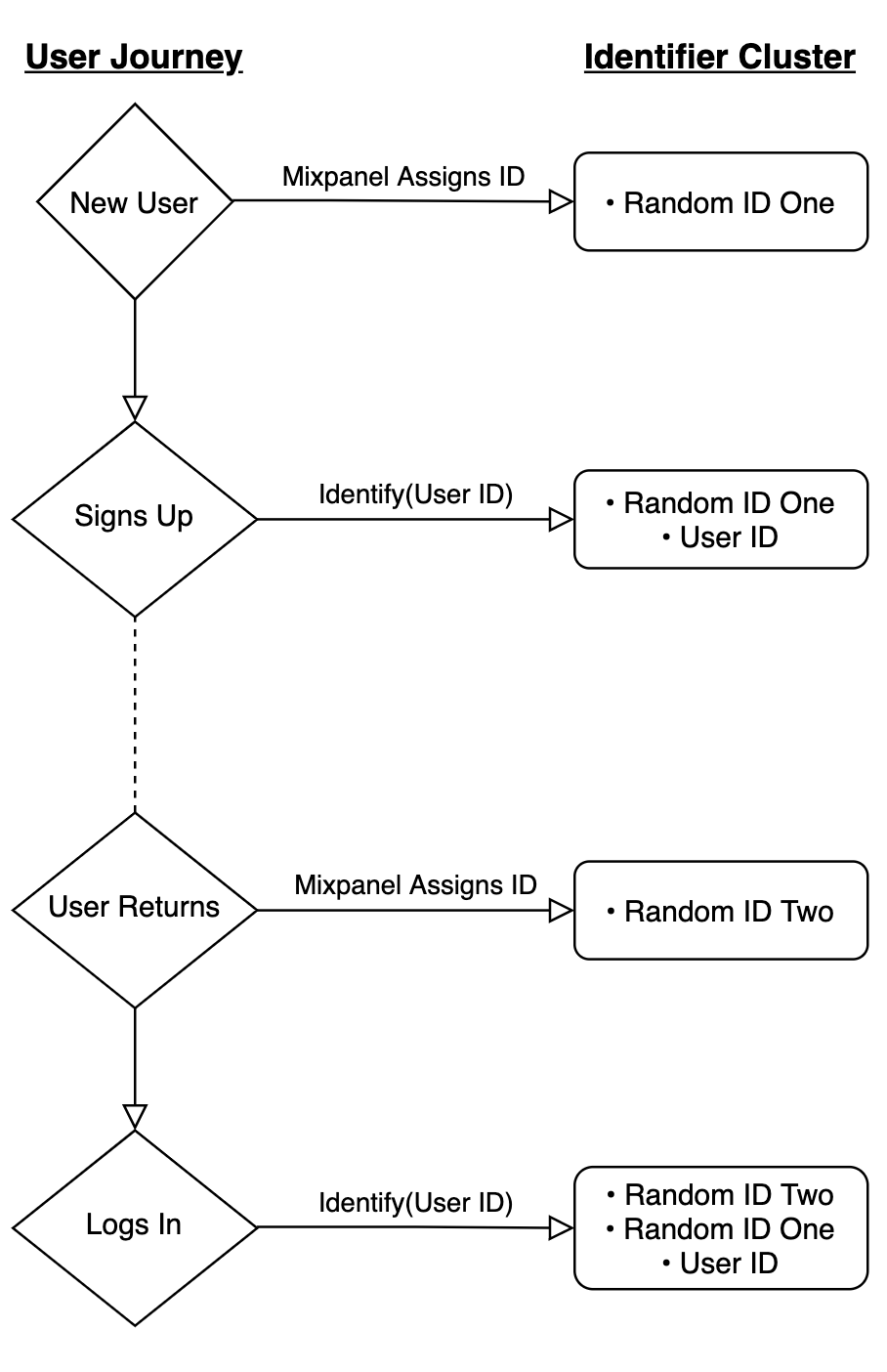
Mixpanel vs. Amplitude Which ID Merge Solution Wins?
Amplitude vs Mixpanel: Reporting & Customization. The difference between Mixpanel and Amplitude is subtle when it comes to reporting. Both Amplitude and Mixpanel provide basic reports such as segmentation, funnels, and retention reports. Both tools also let you see your data as graphs, bars, trends, etc. They are both versatile reporting tools.

Mixpanel vs. Amplitude Which ID Merge Solution Wins?
Mixpanel and Amplitude: two of the most well-known and powerful product analytics tools out in the market. These two tools are constantly competing, both against each other and against other analytics tools like Google Analytics, as companies try to determine which one is the best tool in terms of features, cost, and efficiency.
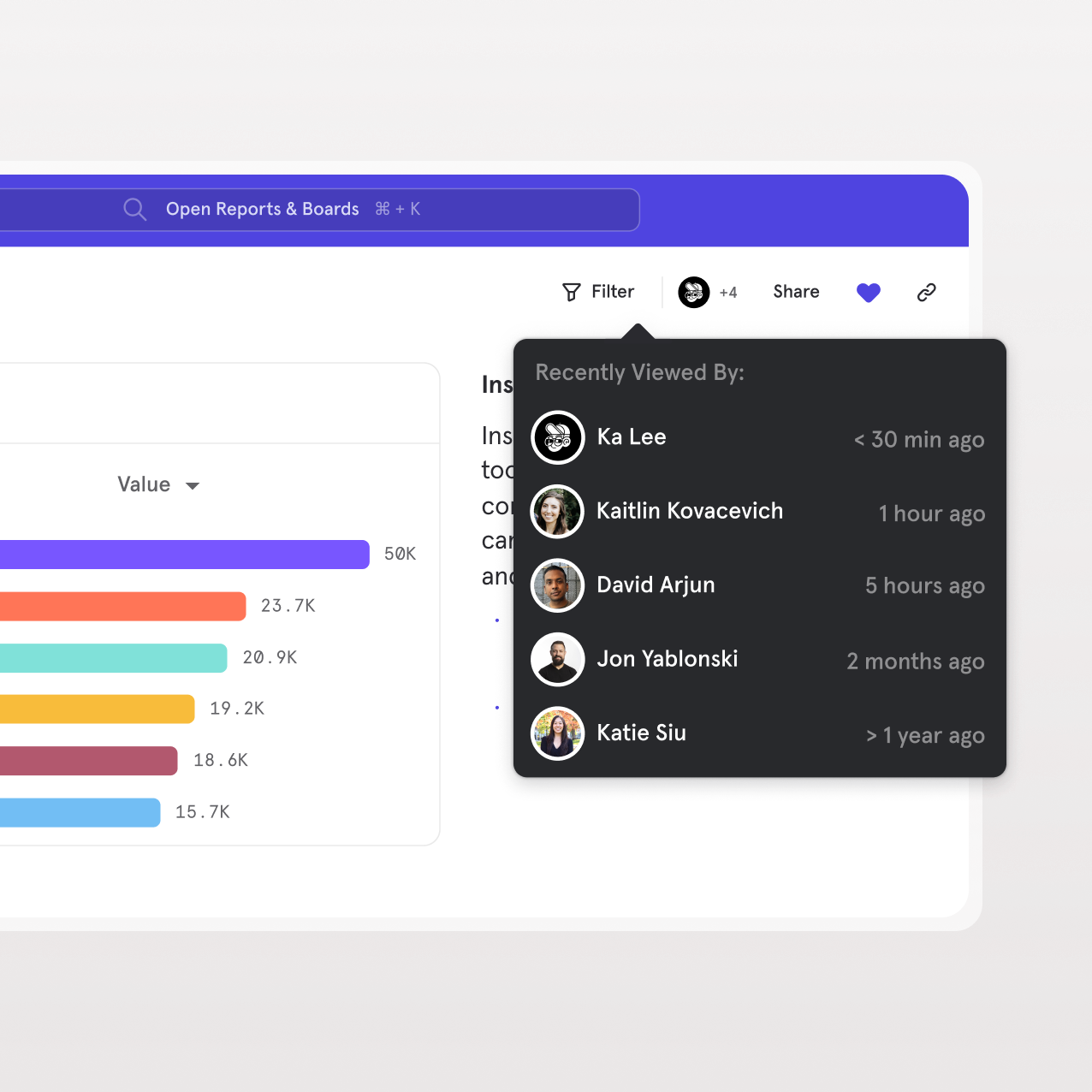
Mixpanel vs. Amplitude Mixpanel
Amplitude vs Mixpanel. Based on verified reviews from real users in the Web, Product and Digital Experience Analytics market. Amplitude has a rating of 4.3 stars with 228 reviews. Mixpanel has a rating of 4.4 stars with 110 reviews. See side-by-side comparisons of product capabilities, customer experience, pros and cons, and reviewer.
Mixpanel vs Amplitude 9 Critical Differences Learn Hevo
The Winner: Amplitude. User profiles in Amplitude are stronger in merging IDs and data across the customer's journey. With identity resolution in either Mixpanel or Amplitude, you'll have access to context data about the user, such as what was the source and landing page of their first visit.
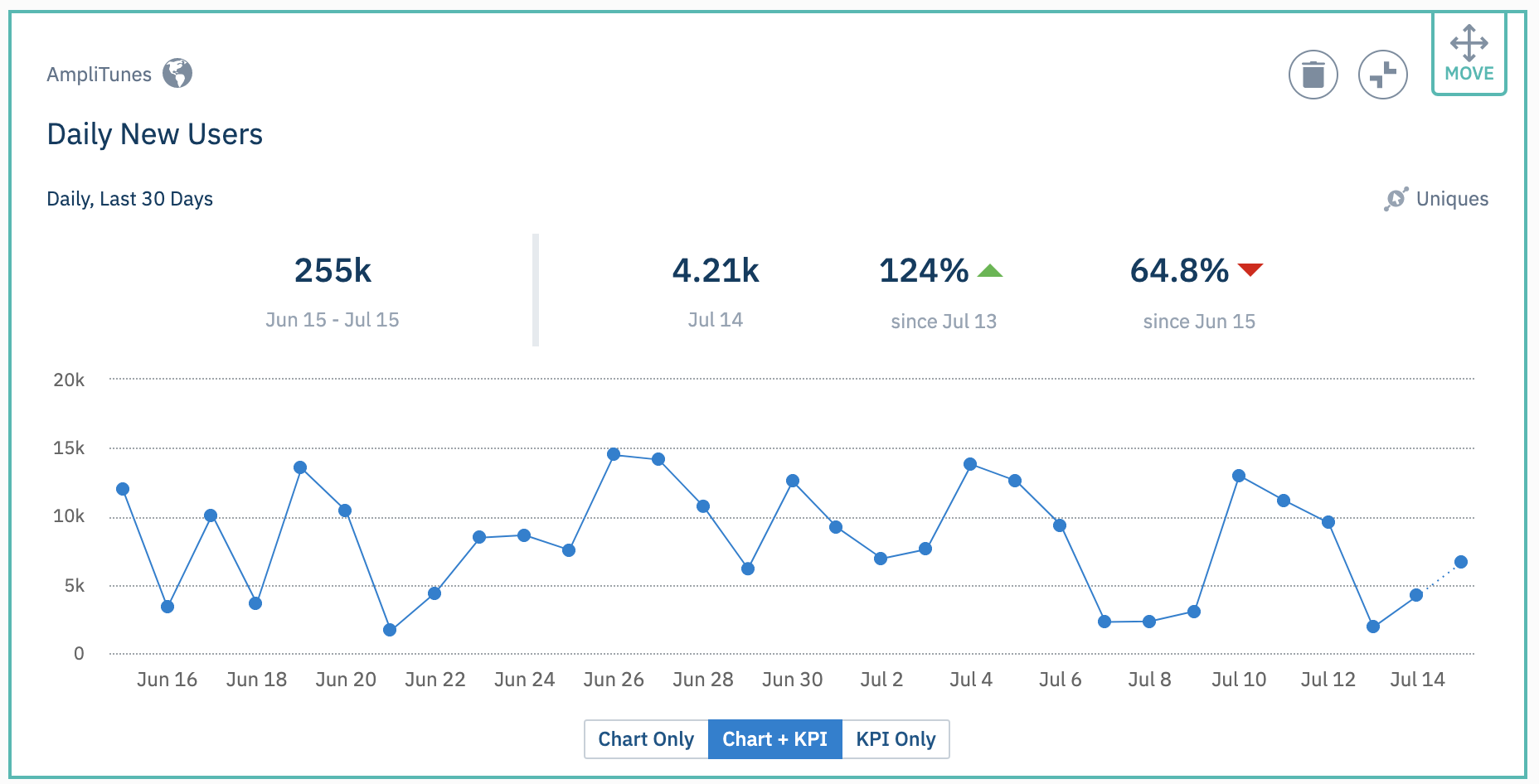
Amplitude vs Mixpanel How to Define a Leader for Your Marketing Needs
Amplitude is becoming the hub that connects your product and marketing data, while Mixpanel is working on being the best product analytics reporting tool. Amplitude and Mixpanel have a lot of similar features like event-based tracking, identity merge, robust reporting and dashboards, data integrations, and collaboration features.
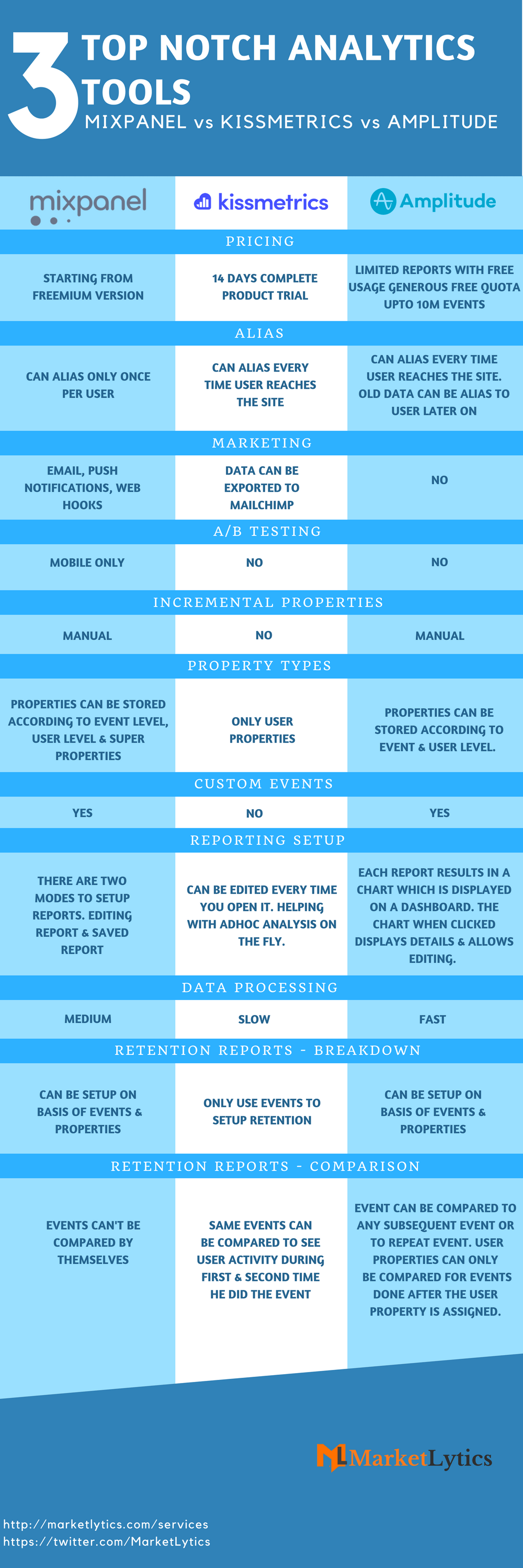
Feature Comparison Between Mixpanel, Kissmetrics and Amplitude! MarketLytics
Furthermore, because the event data appearing in both Mixpanel and Amplitude will be identical, you will be able to perform a true, apples-to-apples comparison between the reports and analyses available in both tools. This is really the only correct way to choose between these two marketing-leading analytics tools.
9 Free Tracking Plan Templates from Mixpanel, Amplitude, Segment, and More
Mixpanel is much cheaper than Amplitude, especially if you have a small number of users ( ~10,000 or less ). If you're on a budget, Mixpanel is a no brainer choice. You'll save tens of thousands per yea r. It's less than $200/mo for 10,000 users. They both have a lot in common here.

Mixpanel vs. Amplitude Which ID Merge Solution Wins?
Looking at features alone, Amplitude and Mixpanel pretty much breakeven on the Growth plan, with the key difference being unlimited data retention and export in Amplitude vs. 12 months data retention and export in Mixpanel. However, Mixpanel offers more flexible (and cheaper) pricing on their Growth plan, so keep this in mind if your startup is.
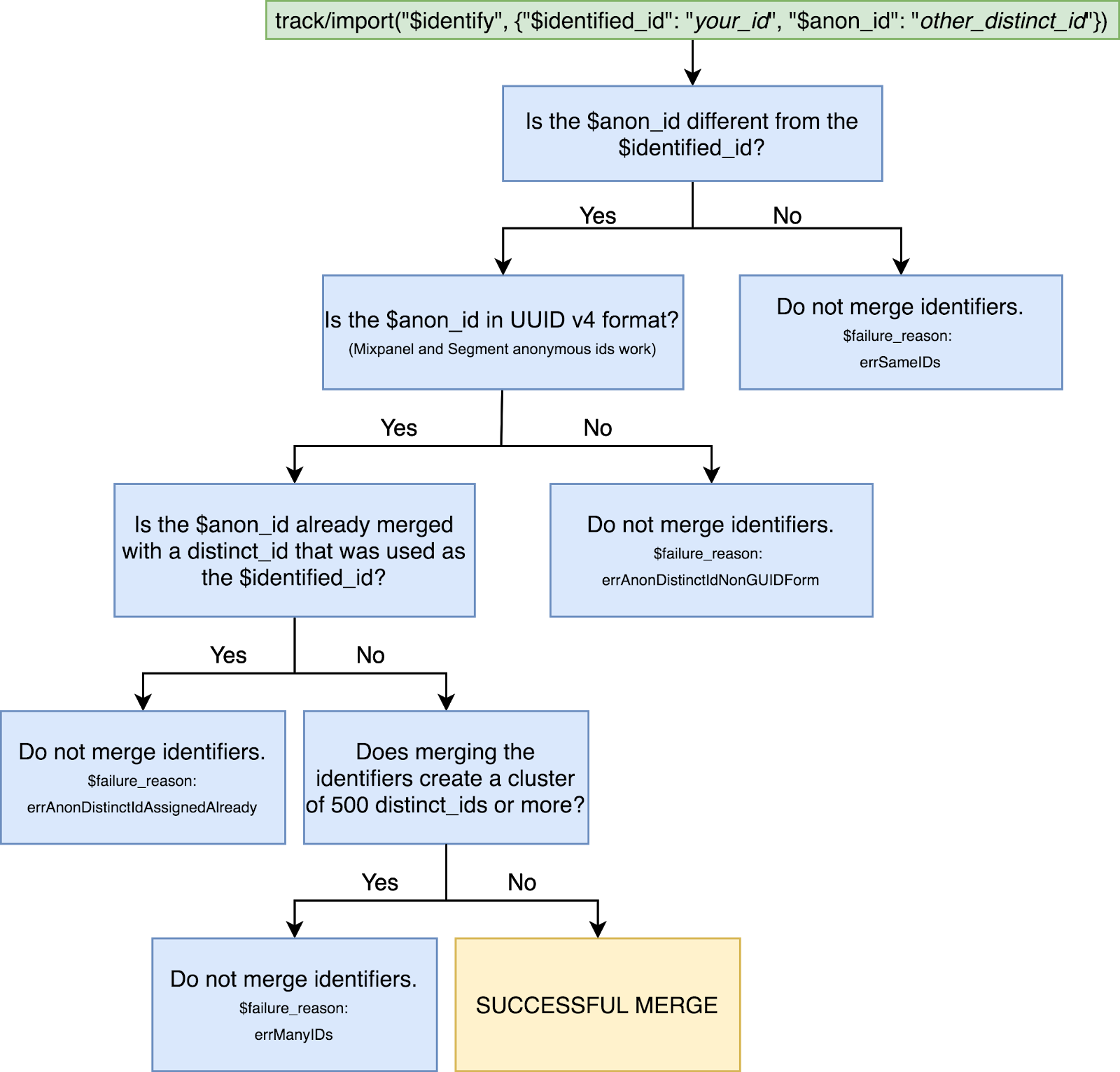
Mixpanel vs. Amplitude Which ID Merge Solution Wins?
Nonetheless, you can (and probably should) use Google Analytics together with either Amplitude or Mixpanel. Which of the two tools do users prefer? According to Gartner, Amplitude and Mixpanel have good web product ratings from users as well as favorable reviews. Amplitude's rating is 4.8 out of 5, and Mixpanel's is 4.3 out of 5.
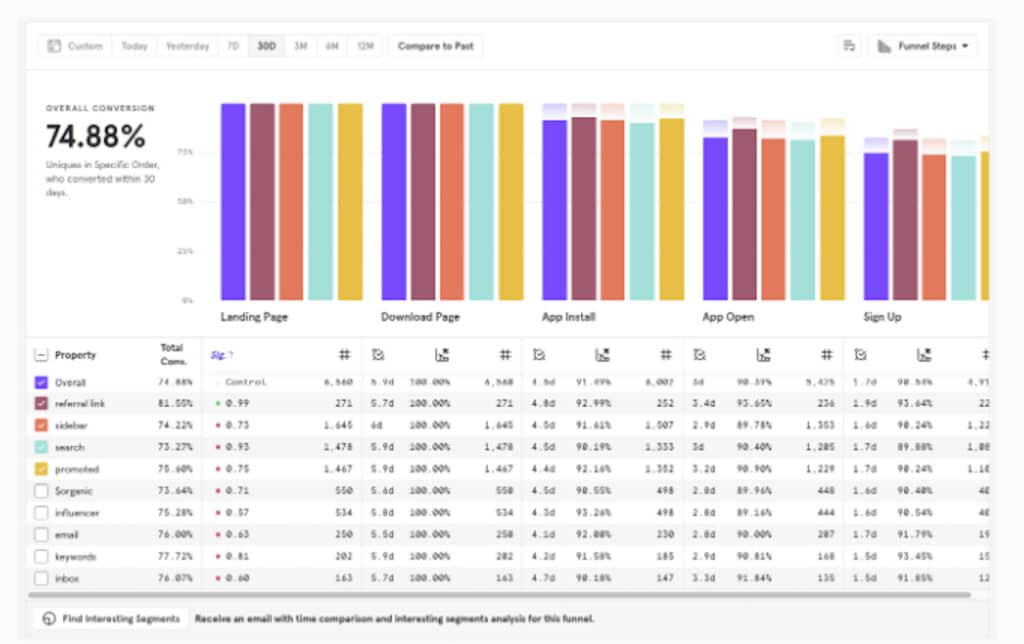
Amplitude vs Mixpanel Which Product Analytics Tool Works Best in 2023?
Amplitude and Mixpanel are biased towards tech-savvy companies and neglect non-technical users. A study by G2 found that Amplitude and Mixpanel are rated higher by companies with more technical expertise. This creates a barrier for non-technical users who struggle to navigate the complex interfaces and jargon. 4. Amplitude and Mixpanel.